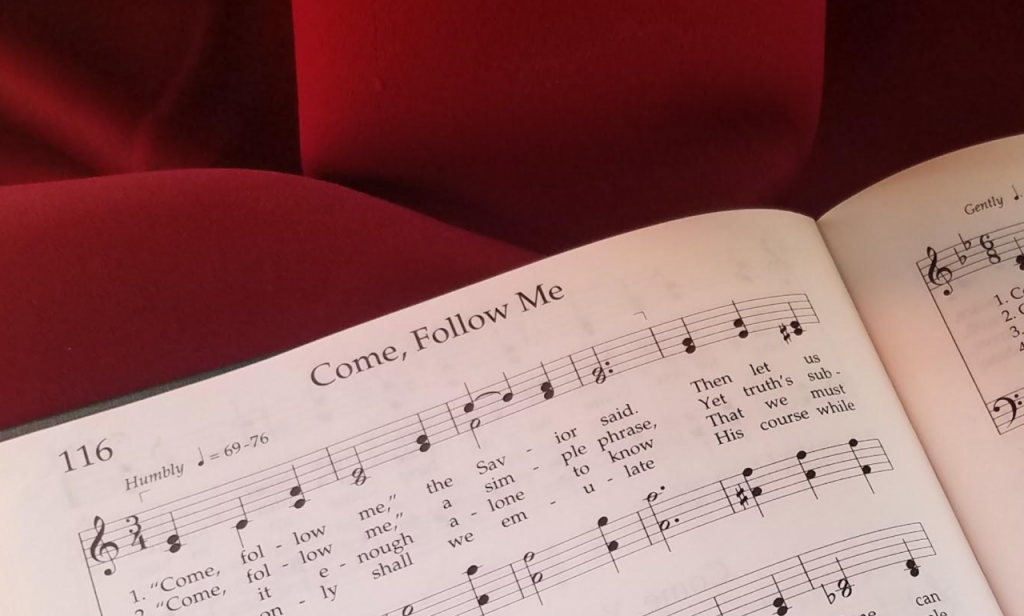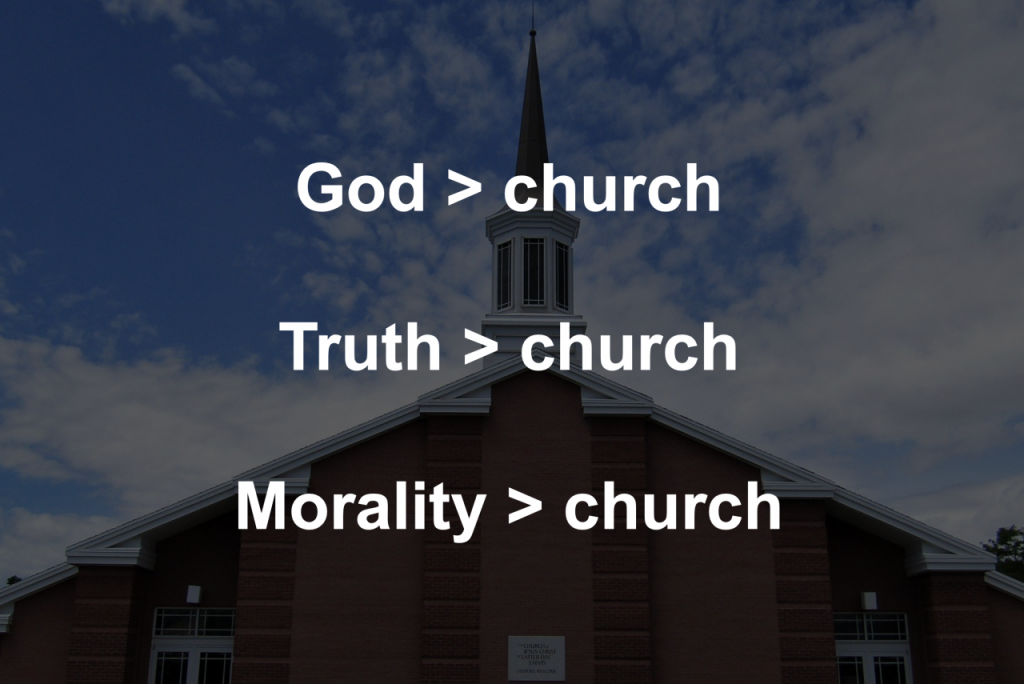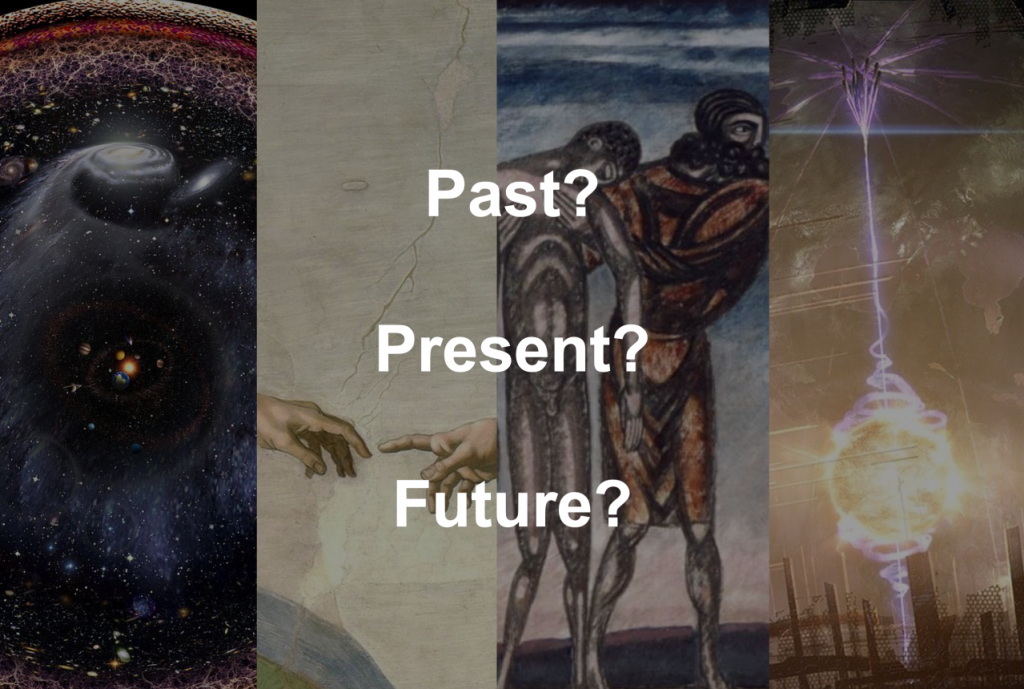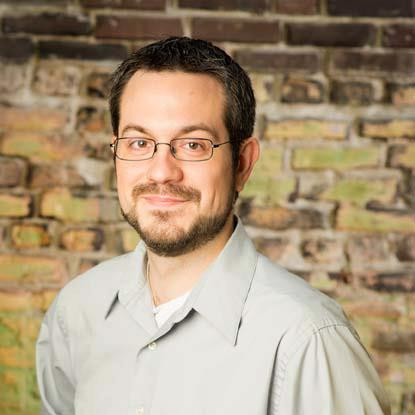Abstract: The following is an essay I presented at the 2020 Sunstone Symposium’s “Why I Stay” session. In it, I describe my experience of deconstructing then reconstructing my faith as a way to find renewed meaning and value in staying religious, Mormon, and practicing in The Church of Jesus-Christ of Latter-day Saints.
Style note: This essay talks about Mormonism as a broader religious movement and cultural identity, church as a concept (lower-case ‘c’), The Church of Jesus Christ of Latter-day Saints specifically (or just ‘the Church’), and its culture (just Latter-day Saint) as it seeks to follow the style guide published by The Church of Jesus Christ of Latter-day Saints.


“Why?” is one of those questions that is paradoxically necessary to ask while simultaneously too psychologically expensive to ask all the time. Morally, we all face a fallen, broken world that affects every individual, relationship, family, community, nation, and institution. “There is no one who is righteous, not even one” as the scriptures say. (1) Never asking the question “Why?” requires we turn a blind eye to this fact (often exempting ourselves in the process). Making it the only question we ask leads to paralysis. I think humanity walks balancing between these two extremes: finding the courage and faith to trust, move forward, and act while wrestling with its own limits to knowledge. And in an age where religion seems to be in a kind of phase change with melting, boiling, and sublimating processes, the path of discipleship is particularly precarious but also particularly urgent. In order to answer “Why I Stay”, I’ll need to frame my own personal journey, with its griefs and gratitudes, as well as the religious landscape as I see it.
The Latter-day Saint hymn ‘Come, Follow Me’ touches on the tension between knowing and acting:
Is it enough alone to know
That we must follow him below,
While trav’ling thru this vale of tears?
No, this extends to holier spheres.We must the onward path pursue
As wider fields expand to view,
And follow him unceasingly,
Whate’er our lot or sphere may be. (2)

Early January 2018, as I sang this song opening a Latter-day Saint fast and testimony meeting, it caught me odd that before a ritual where we share our faith, hope, and knowledge – with that ever-present phrase “I know” – we would sing a song about how spiritual knowledge is not enough. I got up and asked, “What does that hymn mean that it is not enough alone to know?” and spoke about how we need the courage to act as we respond to one another who “[travel] thru this vale of tears”. This was impressed on me in a recent experience I had just days prior.
After Christmas day festivities, I was on the phone with my brother. I could tell in his voice that he was not doing well. Just weeks after our father passed away due to cancer, my mother was spending Christmas with my brother and his family in California when she suddenly suffered some kind of cardiac episode. They were able to ambulate her to a nearby hospital where she laid, intubated, in the ICU. She was stable, barely, and my brother and his wife had spent the last 24 hours in the ICU with her. I booked a flight right away to be there the next day until she could be on a path to recovery.

Things were a bit of a blur. My mother was tired, wondering if she was being called to be with dad – we were wondering that too. Communicating was difficult with thumbs up/down with some words drawn shakily by her finger on an iPad, doctors coming and going, decisions, surgeries, contingencies, what-ifs, no guarantees, sleepless nights, etc. When we understood how serious and longer-term the circumstance was my aunt volunteered to come down and help.
I love my aunt. Her resilient, no-nonsense grit and determination are a gift. Whether she’s ministering to people in a long-term care facility or going toe-to-toe with priesthood leadership to tell them they are wrong for postponing a baptism because of a scheduled basketball pickup game, her stories of fearlessness in how she serves in life and in The Church of Jesus Christ of Latter-day Saints are wonderful and inspiring. “If all [women] had been, and were, and ever would be, like unto her, behold, the very powers of hell would have been shaken forever.” (3) She was a godsend and helped us to continue onwards and help my mother have the courage and support to further stabilize.
In the long, nervous hours of silence felt in hospitals, she and I took the time to catch up and reflect on the situation – my father’s death still fresh in our minds. The questions of “What does this mean?” or “Why did this happen?” came up. My aunt saw divine providence in the cause and meaning surrounding this, I saw mostly a random, unfortunate, biological circumstance. Don’t get me wrong, I believe we can create and find deep meaning from our experiences which draw us to God, but my Mormonism has changed such that I do not find comfort in a God who is behind everything. We discussed this, not finding much common ground.
In further discussion, the topic of ultimate salvation came up. Again, there were strong differences of opinion. I believe in an early Mormon model of eternal progression that extends beyond this life with progress between notions of kingdoms of heaven. I believe that as long as intelligence exists it is capable of growth. And I believe that removing an intelligence’s ability to progress spiritually or morally makes it no longer an intelligence. Again, not much common ground on this one.
I think this experience of eroding common ground gets at the heart of a crisis religion faces today – often seen most clearly in generational shifts and the tension with tradition. An over-reliance on tradition is like gerrymandering the districts of time: it consolidates power, but at the cost of the voice of those it governs. And while tradition can stabilize and provide safety, tradition is a bit like manna: it can spoil after time and each new generation will have to go back out and gather it up anew. As Greg Prince has noted: “Not a single significant LDS doctrine has gone unchanged through the entire history of the Church.” (4) There are real risks here as the doctrines of one era have become the polemics in another. These are some of the things that swirl around as I consider the question of “Why stay?”.
While this essay is about my own experience, it is important to briefly note that data shows real trends. A 2015 Pew Research Center study finds that while spirituality is no less important to millennials than prior generations, religious affiliation rates (particularly across nearly all Christian affiliations) are declining. (5) In late 2019, Pew Research described this trend as continuing ‘at rapid pace’ since 2015. (6) In an independent study by the Public Religion Research Institute, 33% of millennials identified as religiously unaffiliated. (7) And Jana Riess’ “Next Mormons Survey” (8) found growing cohorts of young Mormons (Latter-day Saints) for whom many traditions in the Church have instead become an anathema. For many, the comfort of correlation has multiplied into the crushing weight of conformity, strict standards of safety have birthed a culture of judgment, truth claims have formed into a contentious wedge, the veneration of leaders has slid into idol worship, and the centrality of post-WWII nuclear family has defined a capricious periphery. For many, the 64% of Latter-day Saint millennials who have left (9), the manna has spoiled.
I have seen this within my own family when our son came out as gay over a year ago. When he came out, he framed it by saying, “I don’t think I can be Mormon because I don’t want to be alone.” The irony and tragedy of that statement given Mormonism’s strong emphasis on sanctifying relationships is deafening – it creates a ringing in the soul. How can we deny the most basic human desire for loving companionship to God’s children? For me, a posture of equanimity is how I approach this: I will not demand anything of my children that I was not asked. If I were denied loving companionship by my faith, I would likely make the same assessment. This puts me a bit at the edge of current prevailing Latter-day Saint norms. But how could I be anywhere but at an edge when the center pole struggles to accommodate my own flesh and blood? This kind of displacement creates rangers and explorers in the religious ecotones of life.

While I don’t want to trivialize the subject – nor dwell too long on it for the purposes of this essay, I find it useful to look at one salient fact: There is no policy, program, handbook, ceremony, prayer, revelation, proclamation, authority, priesthood, doctrine, scripture, blessing, law, endowment, sealing, therapy, sacrament, anointing, legal brief, conference, investment, fireside, sermon, interview, devotion, piety, fasting, obedience, sacrifice, or ministering that will change the fact that ~5% (10) (likely more) of God’s children born into Latter-day Saint families will be LGBTQ. Nothing the Church, its culture, resources, leaders, or members can do will stop this. This, in my opinion, is part of the revelation: Our Heavenly Parents seem intent on sending to us their beloved LGBTQ children. That is significant.
Perhaps our Heavenly Parents have wisely placed their will on the matter within their LGBTQ children, requiring us to first listen to and honor them before we can receive it – much like how Jesus’ use of parables requires a broken heart and contrite spirit to understand. I do not know of any group that has done more earnest soul searching, asking, knocking, and wrestling with God on the topic of gender and sexuality than God’s LGBTQ children. With the diversity of God’s children, it’s often not a question of us receiving revelation for others, but a question of whether we can hear the revelation coming through others. Our Heavenly Parents send the rain of their LGBTQ children to bless the just and unjust (11); let us be just.
This is only one of the complex topics and issues I have waded through in evaluating staying engaged in religion, and specifically in Mormonism and The Church of Jesus Christ of Latter-day Saints (see LGBTQ resource page and post on race and the Church for more information). Treatment of women, treatment of children, racism and white supremacy, questions on the nature and origins of scripture, church organization, church wealth, epistemology and authority, nature of covenants, obedience culture, treatment of history, power dynamics, politics, etc., all present complex, often paradoxical, questions that get at the question “Why Stay?”. These matters are not unique to Mormonism and The Church of Jesus Christ of Latter-day Saints, though certainly they give their own flavor to these. There is a need for restoration, revelation, and atonement in all of these.
The first part of providing an answer to “Why I stay” is “Why I stay religious.” I do not think that one avoids the challenges I’ve mentioned simply by leaving religion entirely. I think life presents these very human challenges to any group, ideology, or institution seeking to respond to the big questions of life. As the experience of current events has shown, confronting our collective culpability is disorienting, painful, unpredictable, existential, and necessary in all areas of human society. And because it is unpredictable, neither I nor any institution can guarantee outcomes. It is not a matter of simply finding the right equation or dogmas wherein everything becomes resolved guaranteeing the same results for everyone. The Church, and much of Western Christianity, has long tried that. It doesn’t work. Faith, worship, and decisions to go or to stay in community are complex, ongoing, and personal conversations.
Ultimately, I can only offer what has worked for me. For me, a process of deconstruction has led to these important realizations or axioms:
- God is bigger than any church.
- Truth is bigger than any church.
- And morality is bigger than any church.

If we reduce our answers to the big questions in life to just “church” or its dogmas then I don’t think our answers will be big enough. They will always be too parochial, too defensive, and too susceptible to confirmation bias. It puts faith in church above faith in God. Not only that, but it sets us up so that every flaw in our church (big or small) is poised to create an existential crisis of faith. If we, instead, choose to see things as bigger than church we can frame our relationship to, participation in, and fallen nature with church with appropriate expectations and boundaries. This is just one part of the deconstruction process, although a pivotal one.
So, after deconstruction, how do I reconstruct my Mormon faith in a way that leads to a meaningful choice to stay given the issues I’ve mentioned (and many more I haven’t)? For me, I frame my faith in terms of “at least”s:
- God is “at least” a projection of our best desires.
- Satan is “at least” a projection of our worst flaws.
- Atonement is “at least” our ability to heal ourselves, others, and our environments.
- Jesus “at least” tapped into the power of “atonement” and “God” to overcome “Satan”. And this work is the work of “Christ”.
- The Restoration is “at least” a continuous process to recover and reconcile religious ideas to better align with “God” and “Christ”.
Then, on that modest ground, I construct things I have faith in, hope for, or feel are true. Notice how I am adapting one story or myth to another in this reconstruction. While science should inform and challenge our stories and myths, it is ultimately unable to create new ones that approach the moral questions of life. Here, my love of early Mormon germ-truths and my Mormon Transhumanism shows in how I articulate this:
- I believe that the universe (or universes) with all its diversity has been around long enough for intelligence to emerge in our deep past (12), perhaps transcending mortality (13) and that the power involved in doing so requires a society that is benevolent enough not to destroy itself with that power.
- I believe that in a potentially infinite emergent universe, what makes eternity worth living for Gods is discovering and connecting with infinitely novel, co-eternal/co-emergent intelligence while avoiding Their engagement squelching that emergent intelligence’s novelty.
- I believe that this will cause Gods to engage in creative endeavors even to extremes like preserving and resurrecting the novelty and diversity of intelligences so Gods can continue to commune with them and foster their growth to become peers, joining in the infinite diversity of this work.
- And I believe that the only way for us to prove this is for us to work to become these Gods ourselves.
For me, the end result here feels so much sturdier in our post-secular age, so much more beautiful, and very Mormon. This reconstruction can welcome theists, agnostics, and atheists alike – it almost becomes a matter of whether or how one sees God in our past, present, and/or future.

Personally, I land in the theist camp – seeing God in our environment – but also acknowledge that perhaps God is humanity’s potential, not heritage. From a secular perspective: show me the best possible scientific, engineering, and social trajectories and I will point out how those outline God – or at least an idea of God worth emulating or worshipping. Given the broad, persistent decline of Christianity in the US and other countries, can we expect minor policy or theological tweaks to reverse the trend? Rather than catering only to classical assumptions of theism, perhaps Mormonism has within it the ability to call to and invite the “nones”. How might religious decline be affected by a theology that challenges the norms and crosses the boundaries much of religion has arrested itself with? I feel these early Mormon germ-truths are so powerful, I want to stay and help them develop and find new expression – something I feel I can do in the Mormon Transhumanist Association.
Over 100 years ago, BH Roberts made this statement that is prophetically relevant to the challenge religion faces today:
[Mormonism] calls for thoughtful disciples who will not be content with merely repeating some of its truths, but will develop its truths; and enlarge it by that development… The Prophet planted by teaching the germ-truths of the great dispensation of the fulness of times. The watering and the weeding is going on, and God is giving the increase, and will give it more abundantly in the future as more intelligent discipleship shall obtain. The disciples of ‘Mormonism,’ growing discontented with the necessarily primitive methods which have hitherto prevailed in sustaining the doctrine, will yet take profounder and broader views of the great doctrines committed to the Church; and, departing from mere repetition, will cast them in new formulas; co-operating in the works of the Spirit, until they help to give to the truths received a more forceful expression, and carry it beyond the earlier and cruder stages of its development. (14)
So while I’ve given an answer to “Why Mormonism?” one can still rightly ask, “Why The Church of Jesus Christ of Latter-day Saints?” Much of my answer here is intertwined in my many experiences serving within the Latter-day Saint community – experiences and privileges I know not everyone has. I believe discipleship is not about what to think, it’s about how to live – and that distinction makes all the difference in why I stay. In Mormonism, discipleship is rendered in our actions as we seek to co-create heaven on earth; it is not reduced to creeds and conformity. The risks of correlation and its culture notwithstanding, I believe the Church still inherits a strong preference towards service and action over doctrinal or creedal ascents. I’m not interested in a church made in my image – if I were, I likely would come up empty-handed. I’m interested in a church that can bridge between divides in society as it engages in the work of atonement. And while the the Church has work to do here, as one example of what this has looked like in my life I’ll return to the hospital memory I started with.

My aunt and I were sitting in tension – both secure on opposing sides of a debate about Latter-day Saint doctrines of salvation. While a short discussion of the history here helped to ease tension, it was our circumstances and shared goal that evaporated that tension away. What were we doing while we realized we do not see eye to eye on matters of doctrine? We were together administering to my mother’s broken body: encouraging her to fight, to just try breathing on her own for a little bit longer, we were working with doctors and nurses, administering oil (both religious and medicinal) to soothe her body and soul, being there as she awoke from anesthesia after major surgery, massaging her restless legs to keep them still to avoid injury post-surgery, helping her feel safe in the chaos of another patient coming off a hard drug overdose, and helping her eat to gain her strength. In this sacred work of answering the Savior’s call to follow Him and be charitable healers, these heated doctrinal debates often don’t matter much. What could be more Mormon than bringing together diverse discipleship and rolling up our sleeves in the work of redeeming the world around us?
I have challenged my children to memorize this short poem by Adam Lindsay Gordon:
Life is mostly froth and bubble;
Two things stand like stone,
Kindness in another’s trouble,
Courage in your own.

Doctrinal certainties are the froth and bubble in the ocean of faith. And while they can serve a purpose, they aren’t very good at addressing the specific, intimate evils and pains we all grapple with in life. Enduring power is found in the grace we all have access to: a kind word, an open home, a heartfelt apology, a shared meal, a comforting hug, a listening ear, shoulders that prop others up, serving hands, and familiar faces in hospitals. It is in these finer instruments of grace that the power to live the gospel and respond to and overcome pain and suffering in this world is found. Religion and church exist to foster this grace. (15) And the Church, in its laboratories of wards and stakes, draws me most powerfully when it does so.
I think Jesus calls us to “holier spheres” and “wider fields” when He invites us to “come, follow me.” I stay Mormon because I believe its soaring, expansive doctrines of salvation can weather changes religion is experiencing in our post-secular age. And I stay in the The Church of Jesus Christ of Latter-day Saints not because it is the source of all light and knowledge on God, truth, and morality (its Articles of Faith say it is not) (16), not because it is the source of salvation for all (Christ, not the Church is that source) (17), but because it provides an environment in which I am able to practice embodying Jesus’ call to “follow Him” and build His Kingdom on earth in a Mormon context. And I hope I can help more respond to that call “whate’er [their] lot or sphere may be.” (2)
PS: I had the opportunity to follow up with Dan Wotherspoon (who extended me the invitation for Sunstone originally) and discuss some of the essay’s larger themes and highlights on his podcast Latter-day Faith. That conversation is published in two episodes:
- Faith Deconstruction/Reconstruction Process, Part 1
- Faith Deconstruction/Reconstruction Process, Part 2
Citations:
(1) Romans 3:10 (NRSV)
(2) ‘Come, Follow me’, Hymn 116
(3) Alma 48:17
(4) Prince, Gregory. “Science vs. Dogma: Biology Challenges the LDS Paradigm of Homosexuality”, Sterling M. McMurrin Lecture on Religion & Culture. University of Utah – September 2017
(5) Pew Research Center. “U.S. Public Becoming Less Religious”, November 3, 2015
(6) Pew Research Center. “In U.S., Decline of Christianity Continues at Rapid Pace”, October 17, 2019
(7) Jones, Robert P., and Daniel Cox. “How Race and Religion Shape Millennial Attitudes on Sexuality and Reproductive Health.” PRRI, 2015
(8) Riess, Jana. The Next Mormons (p. 285-286). Oxford University Press, 2019
(9) Riess, Jana, The Next Mormons (p. 7). Oxford University Press, 2019
(10) “Is Australia getting gayer—and how gay will we get?”. Roy Morgan Research. 2 June 2015 | “Quase a Metade dos Internautas Brasileiros Concorda com o Casamento Gay”. Ibope (in Portuguese). 25 March 2013 | “Paris, ville lumière, ville de débauche ? L’OBSERVATOIRE DE LA VIE SEXUELLE DES PARISIENS”. IFOP (in French). 19 December 2016 | Mor, Zohar; Davidovich, Udi (2016). “Sexual Orientation and Behavior of Adult Jews in Israel and the Association With Risk Behavior”. Archives of Sexual Behavior. New York: Springer Science+Business Media | 電通ダイバーシティ・ラボが「LGBT調査2018」を実施 (in Japanese) | Sex Poll, Survation 2017 (UK) | “In U.S., Estimate of LGBT Population Rises to 4.5%”. Gallup.com. 2018
(11) Matthew 5:45
(12) Siegel, Ethan, ‘Ask Ethan: How Fast Could Life Have Arisen In The Universe?’, Forbes, Apr 7, 2018
(13) ‘How Advanced Could They Be?’, Astrobiology Magazine, Apr 26, 2004
(14) Improvement Era, July 1906
(15) Uchtdorf, Dieter F., “The Pattern, the Path, and the Promise”, December 4, 2015; 1 Corinthians 13:2-3
(16) Articles of Faith 1:13
(17) 2 Nephi 9:41; Doctrine and Covenants 121:41; Matthew 23:13


